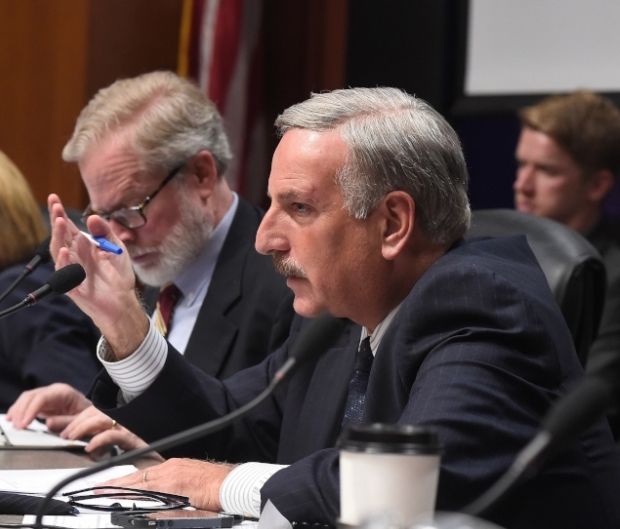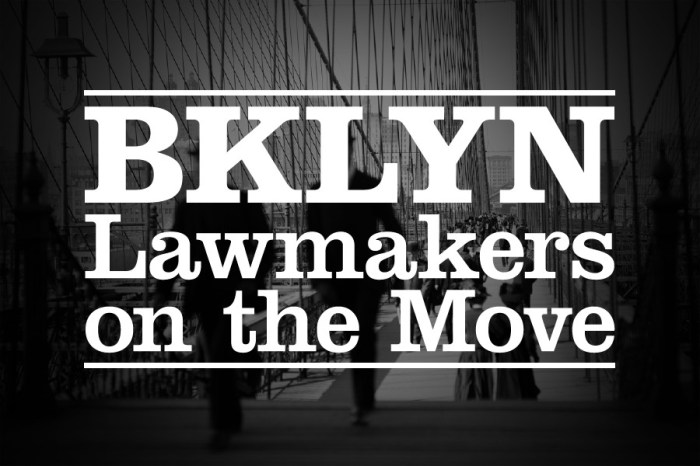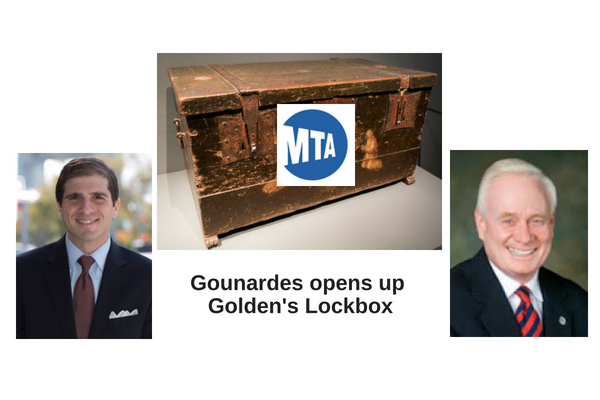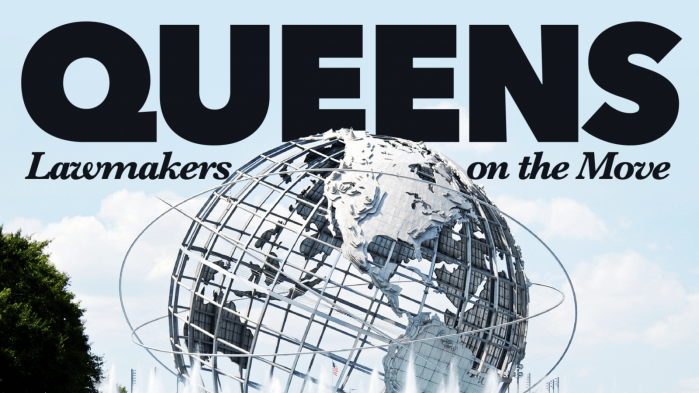Assemblyman David Weprin (D-Fresh Meadows) is staunchly against some of Mayor Bill de Blasio and Governor Andrew Cuomo‘s 10-point congestion plan, which is meant to reduce traffic coming into Manhattan and fix the MTA.
On Monday, at a reception for the Textile Rental Service Association in Albany, the assemblyman denounced several parts of the plan, and provide solutions of his own to both drive down congestion and help fund the MTA and transportation deserts in his district and others.
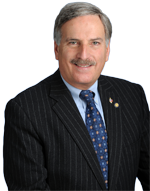
“My district is known as a ‘transit desert’, which means that it lacks many of the public
transportation options that are available in many other parts of the city and as a result has many individuals who rely on their vehicles for transportation,” said Weprin. “These individuals are people who work in the city and drive to Manhattan from my district, people who travel to the city for medical appointments, retirees who might travel to Manhattan for a show, night out or to visit family, and business operators, who travel to Manhattan to service the businesses in the center of our city.”
Weprin’s district encompasses Fresh Meadow, Glen Oaks, Oakland Gardens, Jamaica Hills, Jamaica Estates, Briarwood, South Richmond Hill and Richmond Hill.
“I believe most of the individuals here fall into the last category, operators of small to medium-sized business that are based outside of the Central Business District of Manhattan, who travel to Manhattan to supply, launder, and maintain linens and uniforms,” said Weprin. “I know that you all don’t travel to the Central Business District on a whim or out of convenience, you travel there because you have to.”
The congestion pricing plans call for electronic tolling devices to be installed on the perimeter of the CBD by streets south of 61st Street in Manhattan, according to the mayor and governor. The FDR would not be included as part of the CBD.
The purpose of the cashless tolling system would be to fund a streamlined MTA system, which has common functions such as construction management, legal, engineering, procurement, human resources and advertising managed for each of its six different entities: NYCTA, LIRR, Metro-North, MTA Capital Construction, MTA Bus, SI Railway, according to Cuomo and de Blasio.
“New York’s mass transit is in an indisputable crisis and we need dedicated revenue to fix the subway,” said Senate Deputy Leader Michael Gianaris (D-Astoria) who supports the idea. “Among many serious proposals to fund the system, congestion pricing stands out. I hear from riders every day eager to see its potential realized as a way to make needed improvements to New York’s transit system.”
Sen. Leroy Comrie (D-St. Albans) was also asked by Queens County Politics about congestion pricing but has no comments at this time.
Weprin, however, accused both the mayor and governor of creating a plan that could essentially discriminate against those living in the outer-boroughs who work, have meetings or want to experience the city, especially people in Queens, which does not have as an extensive transit system as Manhattan.
“Drivers already pay a host of taxes and fees dedicated to transportation revenue – there’s vehicle registration fees, garage fees, the gas tax, part of the sales tax, the Metropolitan Commuter Transportation Mobility tax – which is a payroll tax on businesses in the counties that surround New York City – and last year’s revenue stream – which placed additional charges on for-hire vehicles traveling in the Central Business District,” according to Weprin. “The way I see it, congestion pricing, will be an additional tax on NY’s middle class and will effectively create a tax on all goods brought into or out of into Queens, Brooklyn, Long Island, and Manhattan; further increasing the costs of living and the cost of doing business in the outer-boroughs.”
Weprin believes that not only will the congestion plan be an additional tax on the middle class, but it also will simply redirect traffic.
The assemblyman suggested an end to programs that give certain businesses impunity from penalties when traffic laws are broken, taxing building owners that profit from being near major transit hubs similar, and enacting his bill that would tax non-New York City residents in the suburbs who use the city’s transportation system but don’t pay towards its upkeep, according to Weprin.
Weprin did approve of some measures of the plan that would tax cannabis, tax for-hire-vehicles and to incentive delivery hours to keep people off the street, according to the assemblyman.
“Assuming recreational marijuana will be legalized in the near future, I support a tax on all marijuana products to fund the MTA instead of a tax on drivers,” said Weprin.


